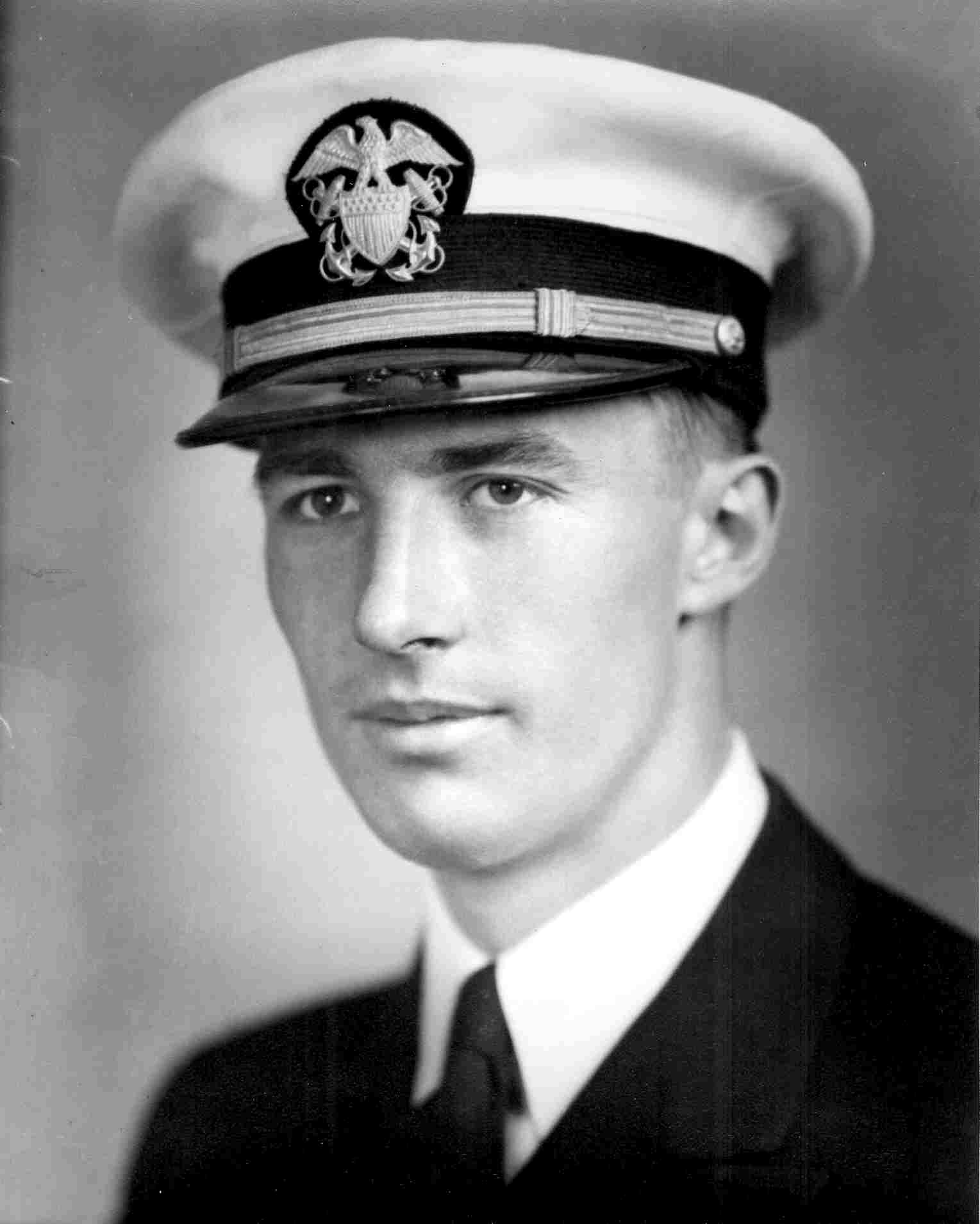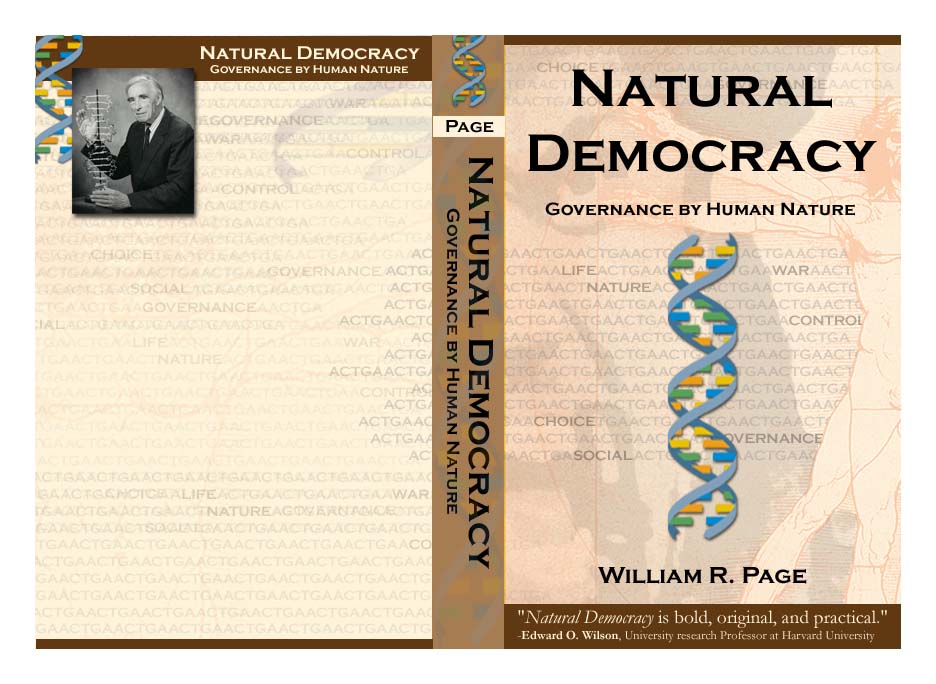
Natural Democracy
Natural Democracy by William R. Page


Natural Democracy by William R. Page

| Chapter 7 TOWARD GLOBAL NATURAL DEMOCRACY Implementing natural democracy is the most important challenge facing humanity in the 21st Century. To meet the challenge we must first understand the evolution-based characteristics of human nature, and then consciously apply that understanding in all the ways that people relate to each other in the broad political processes of natural governance. The horrors of W.W.II precipitated the formation of the United Nations. The yearning that I felt for better ways for people to get along together was universal. This yearning inspired the Universal Declaration of Human Rights which was adopted by the UN General Assembly in 1947 (Ref: Glendon, Mary Ann (2001) A World Made New; Eleanor Roosevelt and the Universal Declaration of Human Rights Random House. This reference will be moved to the "Notes" section at the back of the book.). This declaration provides a legal and moral beacon for the world toward which natural democracy must steer. The Universal Declaration specifies that these rights will become available:
Human beings shall enjoy freedom of speech and belief.
The Declaration also provides these goals as beacons:
Freedom from fear and want
This century will see an inevitable movement from auto-pilot to self-pilot as people take better charge of their destiny, and work cooperatively toward achievable goals which they set. The last sections of Chapter 6 formed a vision of feasible natural democracy using the results of the tests reported in the previous chapters. If we were to articulate that vision, and implement natural democracy, what choices would people be likely to want to make for their lives? What goals would emerge? PERSONAL CHOICES THAT PEOPLE WOULD LIKE TO MAKE Over the course of the experiments described in this book, I have asked many people with a variety of life histories and backgrounds, "What choices would you like to be able to make that you can't make now?" Their lists were lengthy, but in almost every instance, their top seven choices in the order of importance were:
Then I asked
the question to include their families: "What do you want the
future
to be for you and your family?" Here are their answers:
MEASUREMENTS OF PROGRESS
My boss at
the
time was Bill McCune at Polaroid who called these goals "excessively
presumptuous."
Perhaps they were then. But as I re-read Goal 4, I realize
so much has happened over the last two decades to bring us closer to
achieving
it.
A proposal for a World Parliament has been developed and endorsed by 141 distinguished individuals from 31 countries and every continent, including E.O.Wilson, Sir Arthur C. Clarke, and Paul Kurtz. They propose a Parliament which would proportionally represent the people of the world rather than their governments. It would be one house of a bicameral legislature. The present United Nations would continue to represent nations and serve as the other house. The arrangement would be similar to the structure that emerged after the American Revolution when the confederation of sovereign states created the current federal system with a Senate and a House of Representatives. The test of
natural
governance in Chapter 6 showed that at the community level we can
address
local, state, national and global issues. The World Parliament of
Wilson and his colleagues has similarities to the community test in
Lexington
in 1975. We could expand the power of the World Parliament, by
allowing
communities at the Lexington level all over the world to have a say in
state, national, and global issues. In effect, this
proposal
would apply self-piloting and conscious use of the tools of natural
governance
on a world scale. These thoughts startled me. Were
they
realistic?
Promote the development of friendly relations between nations.
The tests described in the previous chapters provide experience that is helpful in describing how the World Parliament would operate in a natural governance mode. It could be
designed
to meet most, if not all, of the same specifications as those for
natural
governance at nation, state, and community levels. The
binding
commonality is human nature in all of its manifestations:
Just as these specifications could be implemented, so there could be a similarity in techniques to accomplish that. Here is a list of appropriate techniques based on the experience of the tests discussed in Chapters 2 through 6.
The Universal
Declaration of Human Rights also contains insights about techniques
which
should be taken into account for an effective World Parliament:
THE WORLD PARLIAMENT AS HUMANITY'S BRAIN One way to think about the design of a World Parliament is to imagine it serving as humanity's brain. Our brains contain thousands of interconnected neurons. A multicolored map of cyberspace created by Bill Cheswick and Hal Burch at Bell Laboratories appeared in the January 2000 issue of National Geographic. The way it was drawn gives the impression of networks of neurons in the human brain. The connecting links between web sites are analogous to the dendrites connecting the neurons in the brain. The web sites of the World Parliament would be world citizens and communities. Establishing
a World Parliament and having it serve as humanity's brain is a
daunting
task. Many people will be struggling with it. The idea's
time
has come. As I've immersed myself in it, I've felt the need to
explain
what I think it means to be "humanity". Being humanity?
Humanity
governing itself?
Being Humanity Being all women, all men, all children of the whole world Being humanity's DNA
Being in every culture, every religion; believing in every belief that
anyone
Being every past human Being of every point of view, every belief about everything Being the expression of every emotion, every feeling
Being humanity.
This poem also describes the task of the World Parliament; being humanity in all its glory, amazement and nobility. Being humanity as we find ways to use all our brains in governing ourselves. The Parliament would operate by the rules of humanity's brain. These rules are the tools for humanity using its brain, tools as shown in the previous chapters. This book has shown parts of humanity's brain working in natural governance modes. What I've described as a World Parliament would be a combination of what was happening in each of the tests, a composite of natural governances. The total would function as natural governance because its components would be feasible natural governances. The interfaces between governances would be points of balanced and expanding reciprocity. An example is the interface between the reparative board processes and communities. Reparative boards catalyze more effective community governance by making more opportunities for reciprocity visible. Each community would develop great goals and share them with the world. Each community would think through how it is going to get to where it wants to go. All communities would share answers. Because natural governance would be used throughout the world, there are bound to be similarities between ways of working toward the goals in the initial stages. Any differences between goals shouldn't get in the way of the initial reciprocity. The differences should narrow as cooperation increases at all levels of natural governance. There would be value in having competition among long range goals. It will provide a safety factor, a cushion, a hedge to allow for unanticipated contingencies, the continuing flexibility to change course to reach goals by other routes. As Robert Wright points out in Nonzero, there is also another safety factor: global commerce is expanding to include more and more people. Global business over the internet, for example. This gives people a shared interest in protecting that commerce from friction and disruption. Natural governance will expand to help with this protection. People should not feel threatened by a World Parliament. Political power would still remain at the national level within a modified United Nations. The power of the World Parliament system would be moral rather than legal. Its authority would come from agreement on similar goals and on appropriate ways of making progress toward reaching them, similar to the authority of the special town meetings as shown in the Lexington test. Funding for the Parliament would come from an international system of taxation based on the Gross National Product of all nations. The taxation would be accepted because natural governance would demonstrate progress toward pre-negotiated goals. For example, progress on the goal of extending the healthy years of life, progress which was catalyzed by the special town meeting process in Lexington, natural governance in action. The vision of Wilson, Clarke, Kurtz, and their associates is precise in its reasoning and consistent with human nature. Our tests of natural governance have shown their vision to be feasible. The vision in the Universal Declaration of Human Rights is feasible. Our opportunity to advance natural democracy is to recognize the inherent dignity, and the equal and inalienable rights of all members of the human family, so that all of us may enjoy freedom, justice and peace. A concurrent obligation is to understand human nature and devote it to the task of developing global natural governance. Our lives will be enriched. We will have decommissioned natural selection. We will be
free
to become all we can be.
|